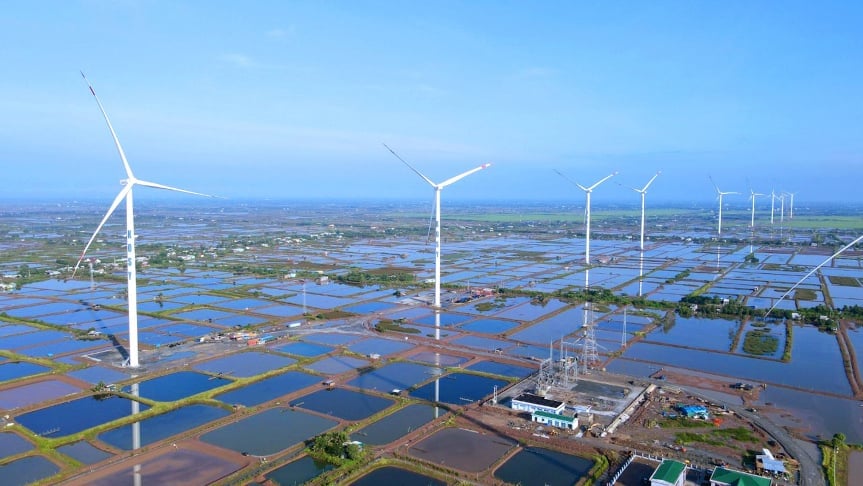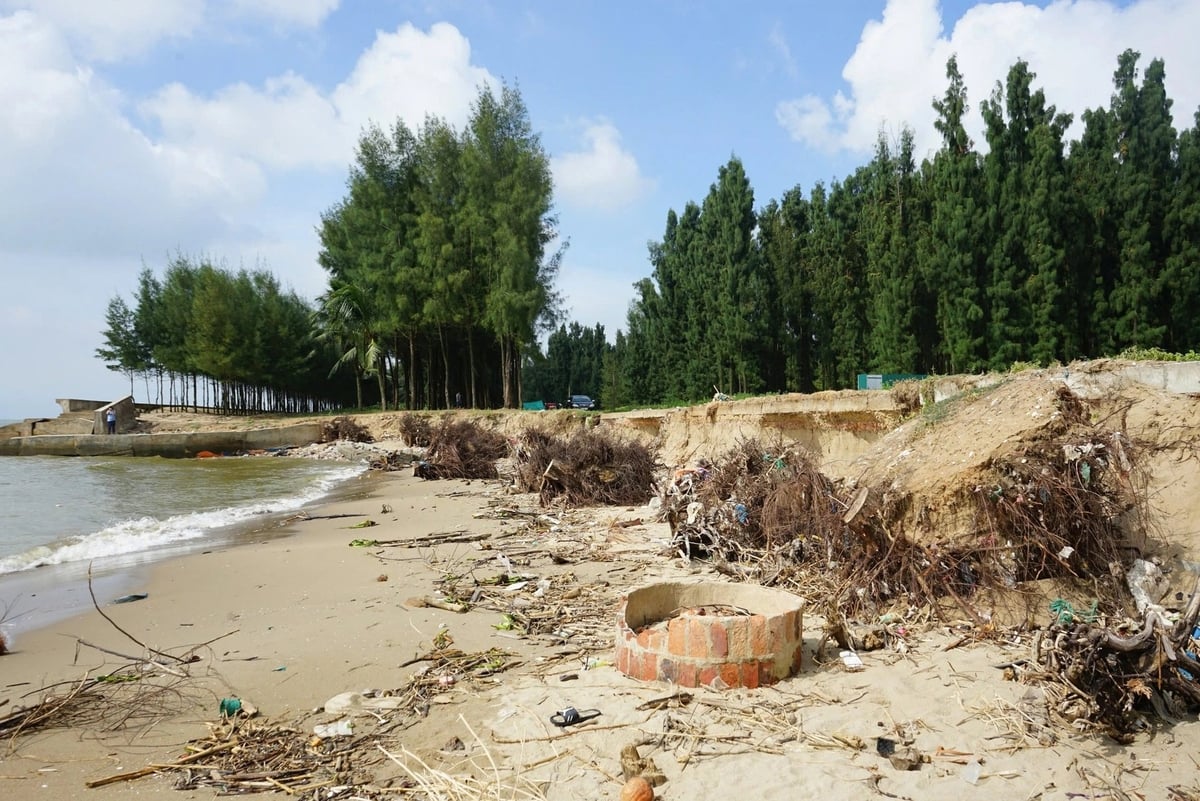December 19, 2025 | 09:22 GMT +7
December 19, 2025 | 09:22 GMT +7
Hotline: 0913.378.918
December 19, 2025 | 09:22 GMT +7
Hotline: 0913.378.918
According to the Intergovernmental Panel on Climate Change (IPCC), climate change is directly impacting food security through rising temperatures, shifts in rainfall patterns, and the increasing frequency of extreme weather events. At the same time, it is placing heavy pressure on land resources, exacerbating risks of desertification and land degradation.
Since 2015, widespread heatwaves, storms, droughts, and floods, especially in coastal cities, have not only caused severe damage to human lives around the globe but have also continued to devastate ecosystems. Even more critically, rising sea levels could trigger large-scale waves of migration and displacement.

The international community expects Vietnam to raise its level of commitment in NDC 3.0, in line with the country’s development conditions. PL.
In response to this reality, Vietnam has actively implemented numerous initiatives both domestically and internationally. On this journey, the country has taken on global responsibility, pioneering commitments to green development and climate adaptation. These efforts embody the spirit of “Vietnam for a Sustainable Planet”, continuing the nation’s 80-year tradition of building and renewal.
In April 2017, the Department of Climate Change was established after being separated from the Department of Hydrometeorology and Climate Change, becoming a key policy-making body. The creation of a dedicated agency for such a global issue marked a significant milestone, reinforcing Vietnam’s position as a pioneer in committing to green growth and climate resilience.
Over the past decade, the Ministry of Agriculture and Environment has proactively advised and proposed numerous key policies to address climate change. Climate-related legal frameworks have also been integrated into various laws, notably the Law on Environmental Protection and the Law on Hydrometeorology.
The government has issued a series of important legal documents, providing a strategic foundation and long-term orientation for climate action. A standout example is Prime Ministerial Decision No. 1422/QĐ-TTg dated November 19, 2024, which promulgates the National Climate Change Adaptation Plan for 2021–2030, with a vision to 2050, building upon and updating Decision 1055/QĐ-TTg from 2020.
Previously, Vietnam approved the National Climate Change Strategy through 2050 with the goal of achieving net-zero emissions by 2050; the National Green Growth Strategy for 2021–2030, with a vision to 2050; the National Disaster Risk Reduction Strategy through 2030, vision 2050; and the National Environmental Protection Strategy through 2030, vision 2050. In particular, the Department has implemented the Climate Change Response Support Program and coordinated with various ministries and agencies to develop over 300 specific policy actions.
n addition to formulating and implementing domestic policies, Vietnam has demonstrated a clear sense of international responsibility by participating in the United Nations Framework Convention on Climate Change, the Kyoto Protocol, the Paris Agreement, the Vienna Convention, the Montreal Protocol, and related amendments.
Building on this foundation, Vietnam is moving toward a low-carbon economy, sustainable development, and enhanced climate resilience. These efforts have not only been recognized and highly appreciated by the international community but also contribute to affirming Vietnam’s role, status, and credibility on the global stage.

Coastal erosion is impacting livelihoods and social well-being in many communities. Photo: PL.
Vietnam continues to review and improve its institutional, legal, and state management systems related to climate change. The focus is on implementing the Climate Change Response Program under the amended Law on Environmental Protection; developing mechanisms and policies to manage adaptation activities; and monitoring the fulfillment of international commitments on greenhouse gas emission reduction. At the same time, regulations on ozone layer protection are being strengthened, and economic instruments are being promoted for climate response management.
Vietnam also emphasizes enhancing international negotiation capacity to safeguard national interests, leverage global trends to expand cooperation, mobilize resources, and acquire knowledge and technology for climate action. Notable achievements include the development of the National Climate Change Adaptation Plan, Vietnam’s NDC, and the Climate Change Response Program within the draft amended Law on Environmental Protection.
Vietnam has always taken a proactive and serious approach to fully implementing its international obligations and responsibilities. The latest update of its nationally determined contribution (NDC 3.0) is widely anticipated by the global community to reflect an increased level of commitment, carefully aligned with the country’s development context and national circumstances.
Translated by Phuong Linh

(VAN) Risk assessment in food safety management not only helps protect public health but also promotes sustainable development.

(VAN) Prime Minister chaired the 26th meeting of the National Steering Committee on Illegal, Unreported, and Unregulated (IUU) Fishing.

(VAN) Cuba is currently streamlining procedures to attract investors, with many new policies shaped by the practical experiences of Vietnamese projects operating in the country.

(VAN) Patrol Team No. 15 has been executing patrol, inspection, and control duties in the Southwest waters, a region identified as having a high risk of violations.

(VAN) UNICEF, IOM, and the U.S. Department of State have worked together to ensure the justice system becomes a protective shield for children and other vulnerable groups.

(VAN) As a key driving force of green transition, the circular economy is being identified as a strategic pillar of Viet Nam's new growth model.

(VAN) UNICEF and IOM receive this aid and provide essential services to assist families affected by recent storms and floods.